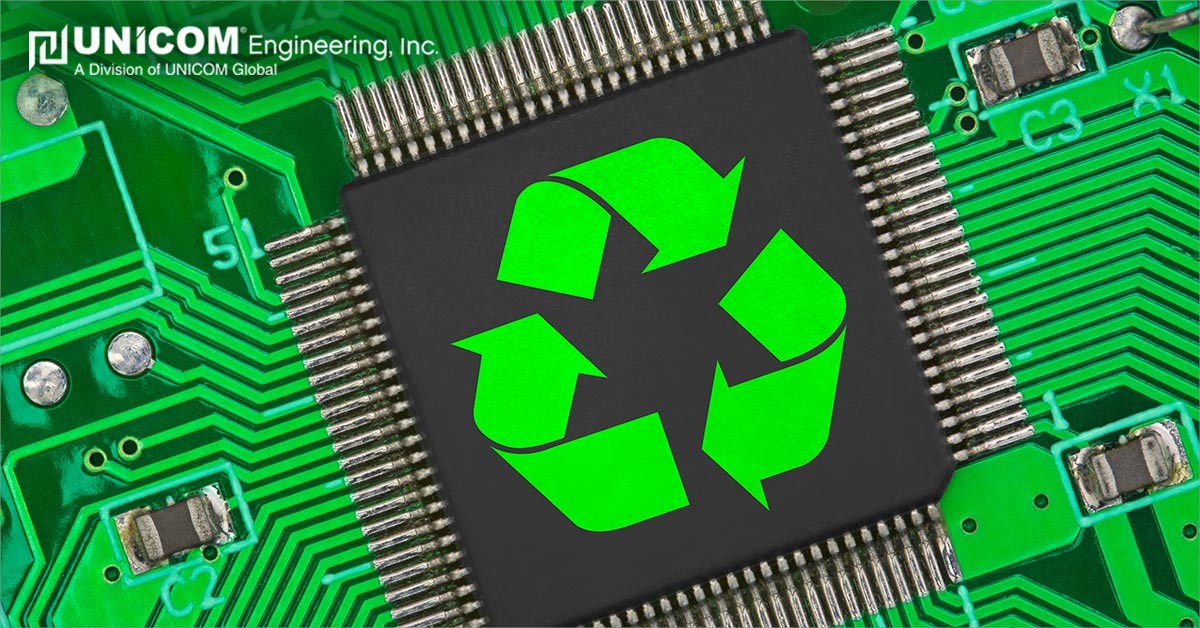Why is Electronics Recycling Important?
The recycling of electronic components reduces the amount of energy needed to create new electronics, recovers precious valuable resources, and prevents heavy metals and other toxins from contaminating the soil, water, and air. Electronic recycling also ensures that data is properly destroyed, materials are appropriately recovered and reused, and businesses have a paper trail to document the proper disposal of their assets. What it really comes down to is our responsibility to preserve and protect the environment for future generations.
The potential energy savings from electronic recycling is staggering. In 2014 the United States alone generated more than 11.7 million tons of electronic waste in the form of discarded computers, cell phones, laptops, and televisions. Recycling programs were created in the 1990s to deal with this rising waste stream, but not all businesses have seen fit to go the route of electronic recycling. Instead, many discard their used tech components in their solid waste, where it is either incinerated or placed in a landfill. Some of these components get sold on the gray market by scavengers or the businesses themselves to dealers in third-world countries, who then stockpile them until the valuable metals can be recovered under less-than-ideal conditions, exposing workers and the environment to contaminants.
Electronics contain a variety of materials that can be recovered and reused. Even those materials that cannot be reused can be segregated for safe disposal, to keep them from harming the environment. Metals such as gold, copper, palladium, silver, platinum, and aluminum; heavy metals like lead, cadmium, and arsenic, and other materials including glass, plastic, and petroleum products exist in various degrees in electronic components, and all of them can be recovered and sold on the open market or safely discarded.
Consider again the amount of energy saved by the simple application of electronic recycling: to generate a ton of copper, 200 tons of copper ore must be mined and smelted. By comparison, only 14 tons of e-waste must be recovered and recycled to produce the same ton of copper. The numbers are even more impressive for gold. To get one ton of the precious metal, either 200,000 tons of gold ore must be mined. Alternatively, only 70,000 tons of recycled components must be processed to produce the same amount. Not only can this help a business substantially reduce its carbon footprint, it can also help keep the precious metals prices down as a result of the lower production costs of recycling versus mining.
How can UNICOM Help You Reduce E-waste?
As an organization, UNICOM Engineering is committed to the environment by minimizing the impact of its operations, continually improving its performance, and preventing pollution. In addition, UNICOM Engineering is dedicated to providing customers with products that meet or exceed international environmental requirements and we work with our clients to facilitate e-recycling programs for servers, storage devices, and accessories. UNICOM Engineering will provide the information needed to ship the components, as well as a final certificate of destruction if required. Another way in which we proactively address waste is in product packaging. We have worked with many clients to re-engineer packaging design to minimize waste.
Interested in learning more about how UNICOM Engineering can work with your organization to address e-waste? Contact us via phone at 781-332-1000 or toll-free at 800-977-1010 or sales@unicomengineering.com to get started today. We encourage you to take corporate social responsibility seriously, future generations will thank you.
